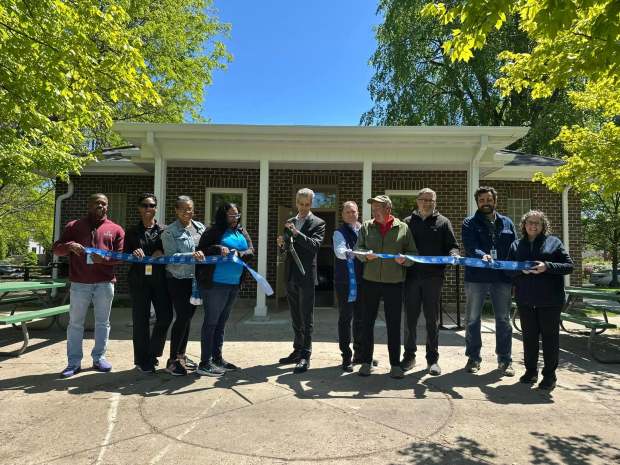Two weeks after postponing its vote, the Gary Redevelopment Commission on Wednesday approved a transfer of 14 properties to the housing authority for a $2.1 million project geared toward homeless veterans.
Vice President Darren Washington was the lone vote against the transfer, saying he still had unanswered questions about the project. At the commission’s Dec. 4 meeting, Washington motioned to postpone the vote.
Although member LaJuan Clemons voted for the project, he agreed with Washington and wished the commission had ample information before the meeting.
“The reality is we do need this for our city, and we do need this for our community,” Clemons said. “I support this, but going forward, just give us a chance to know exactly what we’re looking at early on.”
The Gary Housing Authority plans to use those properties to construct 20 single-family rental homes in the Emerson neighborhood. The housing authority plans to use its nonprofit, the Northwest Indiana Development Corporation, to develop and manage the homes.
The U.S. Department of Veterans Affairs will use its Veterans Affairs Supportive Housing voucher waitlist to identify and place residents, according to a Dec. 4 news release from the city of Gary.
The homes will be adjacent to Northwest Indiana Veterans Village on Massachusetts Street, which is currently full, according to Executive Director of Community Development Ragen Hatcher. That $10 million project was built to house and care for formerly homeless veterans, according to the Affordable Housing Tax Credit Coalition’s website.
“We are in the midst of a national housing crisis, and one of the populations suffering the most are our veterans,” Gary Mayor Eddie Melton said in a news release. “Veterans are an integral part of our community and deserve our honor and respect.”
Before his vote, Washington said he wants to support veterans, but he has concerns about the project, including how the GHA and NIDC are connected. The resolution originally asked for the commission to transfer the property to the NIDC, but it was amended to the GHA.
Taryl Bonds is the executive director of both the GHA and NIDC, which Washington said was a concern.
“NIDC will own the property, NIDC will manage the property,” Bonds told Washington at the Dec. 4 meeting. “But the same token is essentially owned at a distance by the GHA. So, the GHA owns the land if it’s conveyed.”
During Wednesday’s meeting, Gary resident John Allen gave commission members and meeting attendees a petition against the transfer. Allen did not speak during the meeting’s public comment, but he spoke during the Dec. 4 meeting.
In his petition, Allen said he isn’t against a veterans housing project. However, he claims a conflict of interest exists between the two.
Allen is also concerned that NIDC is not a government agency and will help develop the properties.
“The Redevelopment Commission should offer the sale of the properties on the open market via (Multiple Listing Service) or by (request for proposal), so that (NIDC) can attempt to purchase the 14 parcels as would any other non-governmental entity be required,” Allen’s petition said. “Thus, keeping the Gary Redevelopment Commission free and clear of the violation or collusion to violate all the foregoing law, intentional or unintentional.”
At Wednesday’s meeting, Washington said he was also concerned with the project because all the homes are rentals. Of the 20 homes, 15 will have one bedroom and five will have two bedrooms.
“We have a lot of veterans who are younger veterans who would like to be homeowners,” Washington said when explaining his concerns with the project.
Washington also said Bonds never gave a formal presentation on the project, and he wishes commissioners had more opportunities to formally ask questions. He believes a formal presentation would’ve helped the community see what the project will look like.
In his comments before adjournment, Washington said the commission does an injustice to itself and the public by only having two meetings each month. He believes the commission should add committee meetings where members can get formal presentations, and community members can see what projects are up for approval.
“We had two weeks in between (meetings) to have (Bonds) come and do a presentation and answer additional questions,” Washington said. “No commission member should ever feel rushed that they have to make a decision at the last minute to vote for something.”
mwilkins@chicagotribune.com




